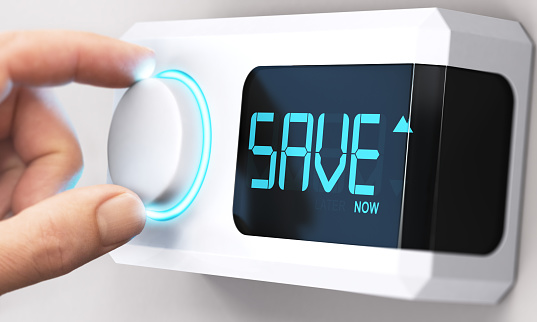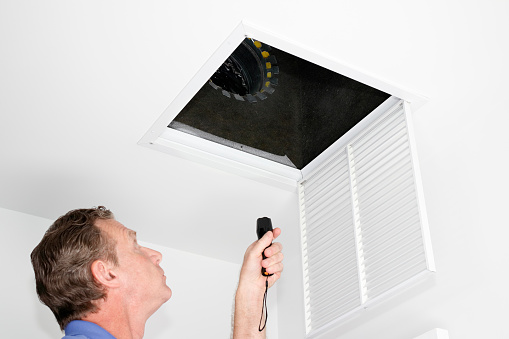With warm summer weather on the way, it’s the perfect time to look at some effective ways to save on your air conditioning costs this summer. According to the U.S. Department of Energy, homeowners spend a combined $29 billion per year in cooling and energy costs – and much of that could potentially be reduced with a few easy tricks and tips.
1. Invest in an automated thermostat

Smart thermostats are one of the best investments you can make when it comes to reducing your cooling costs. They allow you to regulate the temperature of your home when you’re away and control it remotely. Program it to have a higher temperature (only 3 degrees above or below your comfort level) when you’re away from the home, then have the cooling kick on once you’re home. Over time, you’ll definitely see the savings add up!
2. Turn your thermostat up
Often people think turning their air conditioner off while they are away and turning it on when they come home will save money. It doesn’t work. When the system is off (in either heating or cooling cycle) the entire house and its contents ejects the heat or cool temp into the room until they reach equilibrium – walls, ceilings, floors, furniture, appliances, etc. When you return home and turn your thermostat at your ideal temperature…all those items listed much reach that temperature first…before you feel it. This is called heat transfer….This means your system could run for 8-10 hours straight on a very hot or cold day before you are feeling it versus cycle on and off for a total of 4 hours during the day to maintain the temperature. For older more inefficient systems it could run longer and risk damaging critical components like the compressor and motors. Its best to set your thermostat to a higher temperature when you leave the house only 3 degrees above your comfort level, then down to a cooler temperature when you get home will save more money than having the AC unit cycling on and off throughout the day.
3. Window coverings
If you have a lot of sunlight beating on your home throughout the day, it could be heating up your interior. Installing some blinds or curtains will help keep the heat out during the summer and keep heat in during the winter – contributing to energy savings all year round! Awnings work great as well
4. Install a ceiling fan
According to the National Resource Defense Council, using a ceiling fan during warm weather can make a room feel up to 10 degrees cooler, plus it uses 10% less energy than a central air conditioner. You can also improve energy efficiency by installing a smart ceiling fan that schedules when your fan turns on and off. This is because of heat transfer again. Since cool air is blowing across your skin, you feel cooler.
5. Turn off the AC at night and open the windows
If it’s a cool night, you can turn your AC off and open the windows to cool your home down. Be sure to close the windows and drapes or blinds as soon as you wake up to lock in the cool air.
6. Close your chimney flue
Leaving your chimney flue open isn’t much different than leaving a door or window open, so if you have a chimney, be sure to close off the flue during the warm summer months. Doing this simple trick can save an additional 10% on your air conditioning costs.
7. Check your windows for energy efficiency
Heat loss and gains through windows are responsible for approximately 25-30% of residential heating and cooling costs. You can have an energy audit done, or you can simply go around your house and feel for where you feel air coming through around windows and doors. If you have leaks, you can apply caulk to the cracks (or have us do it) to create a fresh seal that will prevent your cool air from escaping. If you have an older home with single pane windows, you may also want to consider installing more energy efficient windows.
8. Have your vents and ducts serviced

It’s important to keep your vents opened and unblocked of clutter/furniture to make sure your AC system is running as efficiently as possible. Blocked vents make your AC system work harder than it has to, leading to higher energy bills – and may even cause damage to your AC unit over time. Many people think if they close the vents or shut doors this saves energy. It is best to leave doors and vents opened and if you have 2 systems, make sure they are both running.
Ducts should also be checked for cracks, as escaping air may also cause your AC to run less efficiently. Additionally, keeping your vents clean is important to your health, as dirty vents can harbor bacteria and microorganisms that can affect your health. Having an Air filtration system with MERV11 or MERV16 5” pleated filter system will keep your system and ductwork clean. UV lights can kill bacteria, mold, and mildew. Investing in a planned maintenance agreement can ensure that your HVAC system stays clean and running as efficiently as possible all year long.



